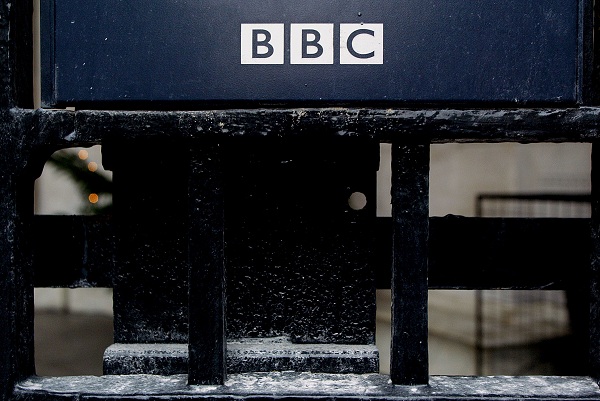The job of George Entwistle, the new Director General of the BBC, will be to manage a gentle decline, rather than hurtling with great enthusiasm towards a state of inexistence. A very ticklish balance needs to be maintained on the issue of the BBC’s moral cross subsidisation – that is, the extent to which the corporation justifies its &”special” existence by doing intelligent and worthy programming which nobody else does and which pulls in few viewers, and the extent to which it justifies its mass appeal by broadcasting cretinous pap which every other broadcaster can do and which drags in lots of viewers. Good luck with that one. My own view is that the BBC has embraced the mass appeal business with rather too much alacrity of late, and that its overall intelligence and thus claims to uniqueness has suffered. But, at the same time, the BBC needs to avoid becoming a sort of marginalised PBS rump concerned solely with putting out cheap documentaries about how awful Israel is and why everybody in Britain is racist. That may well be how it ends up, one of these days. But not yet, surely. Here are some of my suggestions as to what the new DG should address:
First – Diversity. The BBC is not hideously white, but it is hideously monocultural. Its programme makers of whatever colour or creed display metropolitan liberal bias which is not shared by the majority of its audience. It is not so much a left-wing bias, per se, as a sort of complacent assumption that its own opinions are civilised and decent, and those which contrast with them are not merely wrong and beyond the pale but not even worthy of articulation. The corporation needs, both behind the scenes and in front of the camera, a more diverse range of voices who might challenge all those cosy certainties and liberal shibboleths. It would be nice, from time to time, to see just one programme, or news report, which suggested:
– The Arab Spring might not, on reflection, have been an entirely good thing.
– There is a case for Britain leaving the European Union.
– Giving more aid to Africa might be counter-productive, and Africa’s problems generally are not largely the consequence of colonialism.
– The Palestinians can be quite nasty, too.
– Mass immigration may have been bad for the country, overall.
– Britain is still a predominantly Christian country and that’s a good thing.
– Man-made global warming does not exist and wind-turbines are a ludicrous waste of money.
– Problems within our immigrant communities are not wholly, or even primarily, the consequence of racism directed at them by the oppressive white hegemony.
– Not everything homosexuals do is to be cheered as a matter of course.
– Cutting public services is necessary and right.
– Bankers have generated enormous amounts of wealth for the UK.
And so on, and so on. I ought to say that I don’t share all of those views expressed above, or even most of them. But a lot of people do and you never hear them on the BBC. Or, if you do, whoever says them is ridiculed or howled down.
Second – Insouciance. Having made the observations above, one should add that, paradoxically, whenever The Daily Mail criticises the BBC it should be ignored. The BBC has been too hair-trigger in its responses to the almost daily assaults from the right wing press, especially concerning supposed outrages of decency. Tell Dacre to get stuffed. Don’t forget, these days everyone complains; 100,000 complaints on Facebook is the equivalent of about ten angry phone calls twenty years ago.
Third – Leadership. Reithian leadership. Know upon which side the BBC’s bread is buttered. Never mind the supposedly worrying demographics which suggest you are losing the youth vote; they can get their entertainment everywhere else. Whatever the marketing monkeys and the focus groups tell you, remember that the thing which keeps the BBC in receipt of its licence fee is its supposed uniqueness, and this means the serious stuff other broadcasters cannot and will not do: remember The World at War. And remember middle-England, too, when, with great excitement, you’re about to commission a new crime series about the very real problems suffered by black crack dealers in Harlesden.
Fourth – Drama. And, for that matter, new music – classical and popular, new comedy, poetry, dance. Make the BBC absolutely indispensable to the arts. Discover the new Mike Leigh or Dennis Potter or David Storey. Keep BBC Radio Six because it promotes one of our most valuable assets, new modern music. And while we’re on the subject, improve programmes for kids.
Fifth – Organisation. You will be only the latest DG to recognise, immediately, that the BBC is still horribly top heavy. The culling of the middle managers never seems to happen, largely because it is franchised out to…..er……middle managers. Do it yourself; cull a thousand, or two thousand, and divert the savings into programmes. And inculcate a greater sense of ownership and responsibility among more junior programme makers by eschewing the fashion for desperately brief short-term contracts. Give them proper jobs and pay them a decent wage.
So, there we are. Diversity, Insouciance, Leadership, Drama, Organisation. Remember the acronym, jot it down so you remember; powerful, throbbing and electric. I hope it helps you in your difficult task.
 Rod Liddle
Rod Liddle
My advice to the BBC’s new DG






Comments